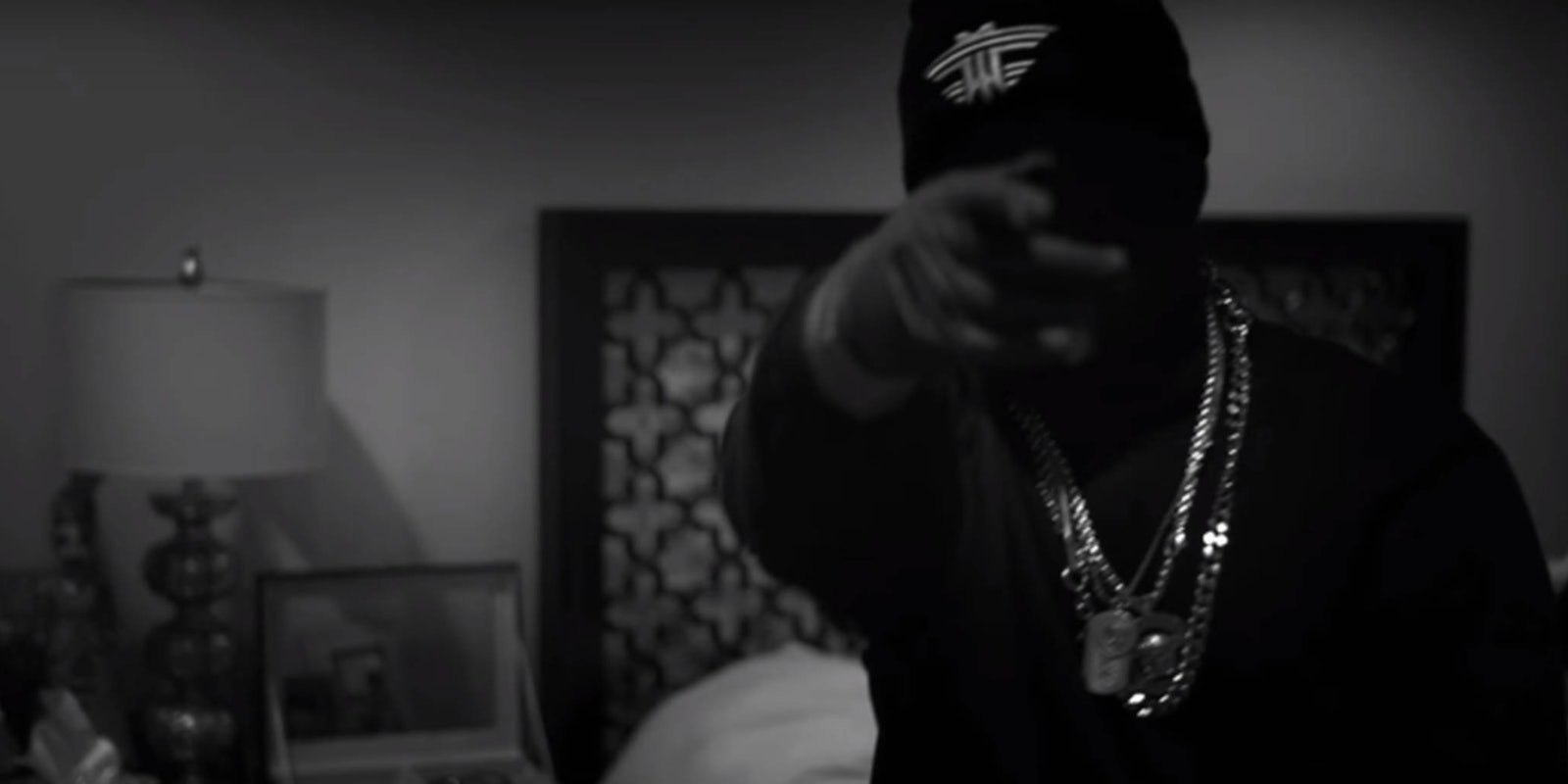The days of running your mouth behind a screen name are over.
Secret identities these days equate to witless gimmickry—especially for artists. More importantly, people will be found out.
Spark Master Tape—as much a concept as a rapper—openly challenges this idea.
Initially surfacing in 2012, a faceless, nation-less Spark Master Tape released cult-creating mixtapes along with some strong loosies: most notably the DJ Screw-influenced Syrup Splash and The #SWOUP Serengeti. But his music offers very few clues for the listener in terms of who is behind it all.
Sitting somewhere between satire and high concept, there isn’t an easily apparent mission statement. But in the course he’s built up a fiercely loyal following on social media.
Jeez. There is just nothing really out there on Spark Master Tape. This guy is a ghost.
— DocZeus (@DocZeus) April 16, 2016
https://twitter.com/AidenYaKnow/status/722174760352768000
Spark Master Tape is hands down the strangest artist I’ve ever found on Soundcloud. In a good way. His music is indescribably turnt.
— G. (@zillaknows) April 18, 2016
Disappearing in 2014, SMT slowed all communiqués, perhaps feeling the heat of potential discovery. There have even been since-archived Reddit strings dedicated to Tape, and his identity—which has never been verified to any degree of certainty. (Interview requests from the Daily Dot were not answered.)
But like Banksy and Burial before him, revealing his identity—and the need for it—would be missing the forest for the trees.
More critical is the idea and design of Spark Master Tape: concepts, messaging, and the overarching aspirations. On the surface, there’s the utilization of trap music, the mainstream’s coded plaything and rap genre of choice in 2016. That means hammer-on-nail percussion, reverberating synths, and cinematic, apocalyptic samples.
Aside from the evident lyrical and production talent, everything after is shrouded in mystery. Tape’s voice, down-pitched and modulated, evokes few potentially known signatures or predictable language—such as his (welcome) declination in common use of “nigga.” Even the membership of Paper Platoon, Tape’s production “unit” and all-encompassing “crew,” remains unknown.
Suddenly reappearing in January, Tape released new single “Livin’ Lavish.” The blog-favorite album, Silhouette of a Sunkken City, hit SoundCloud 1o days ago. The single was accompanied by a video doubling as a visceral experience: featuring automatic weapons with scopes, masked men in Jordans, and lots of fire. On the surface, it could be seen as a typical show of rapper wealth, if not for the anarchist lean.
Most recent single “Tennkeys” features Tape sounding like a caffeinated R.A. the Rugged Man—foaming at the mouth with barked raps, combative in approach and gruff in tone. Its video features desert vistas, a checklist of rapper luxury items, one violent heist, and an industrial chicken coup.
Throughout Silhouette, the messages appear to be of resignation to particular pursuits, namely chasing wealth. On “All About the Money,” Tape runs down ideas mainstream rap “used to” be about, before its reduction to greed. Underneath the life lessons Tape raps with unique self-agency and confidence.
He’s also found a way to make trap sophisticated—no small feat—with thoughtful drum patterning and introspective sampling. Trap normally maintains a palpable darkness, but Tape has added refinement in its layering and foggy gradient. Trap isn’t just a medium, but part of the fatalist message.
Though authentication efforts are close to nil, Tape’s gray-hat aesthetic and combining of archetypes seem genuine. There’s clearly a plan for some level of stardom in place, after his master reset two years ago. (Tape recently signed with Paul Rosenberg’s artist management group Goliath Artists. Yes, that’s Eminem‘s manager.)
To this end, it could all be a massive con; an art performance turned brilliant marketing ploy built on conjuring mystery.
In the mean time, there is the music. Good thing it’s excellent.


